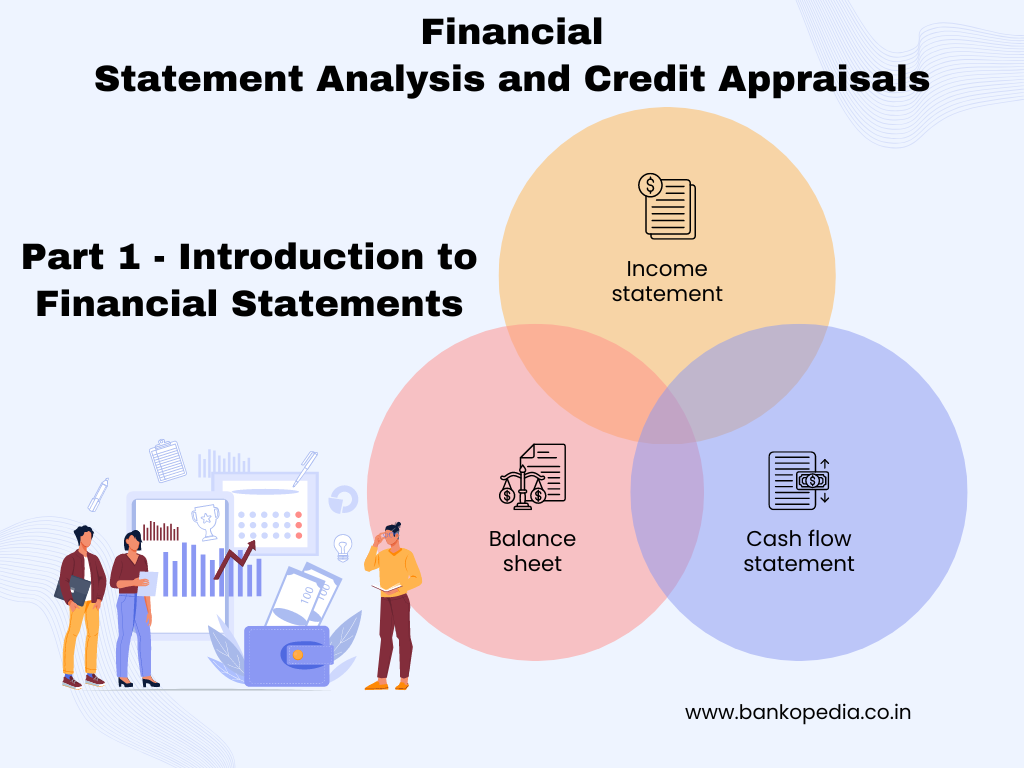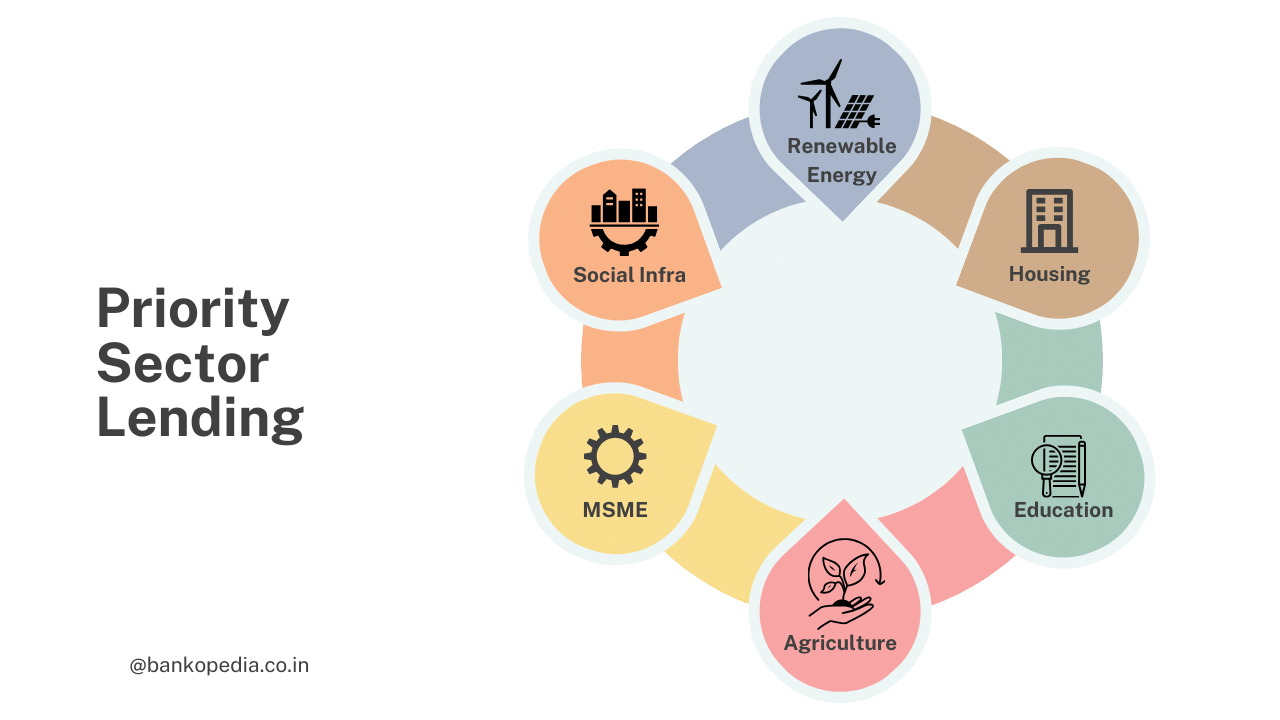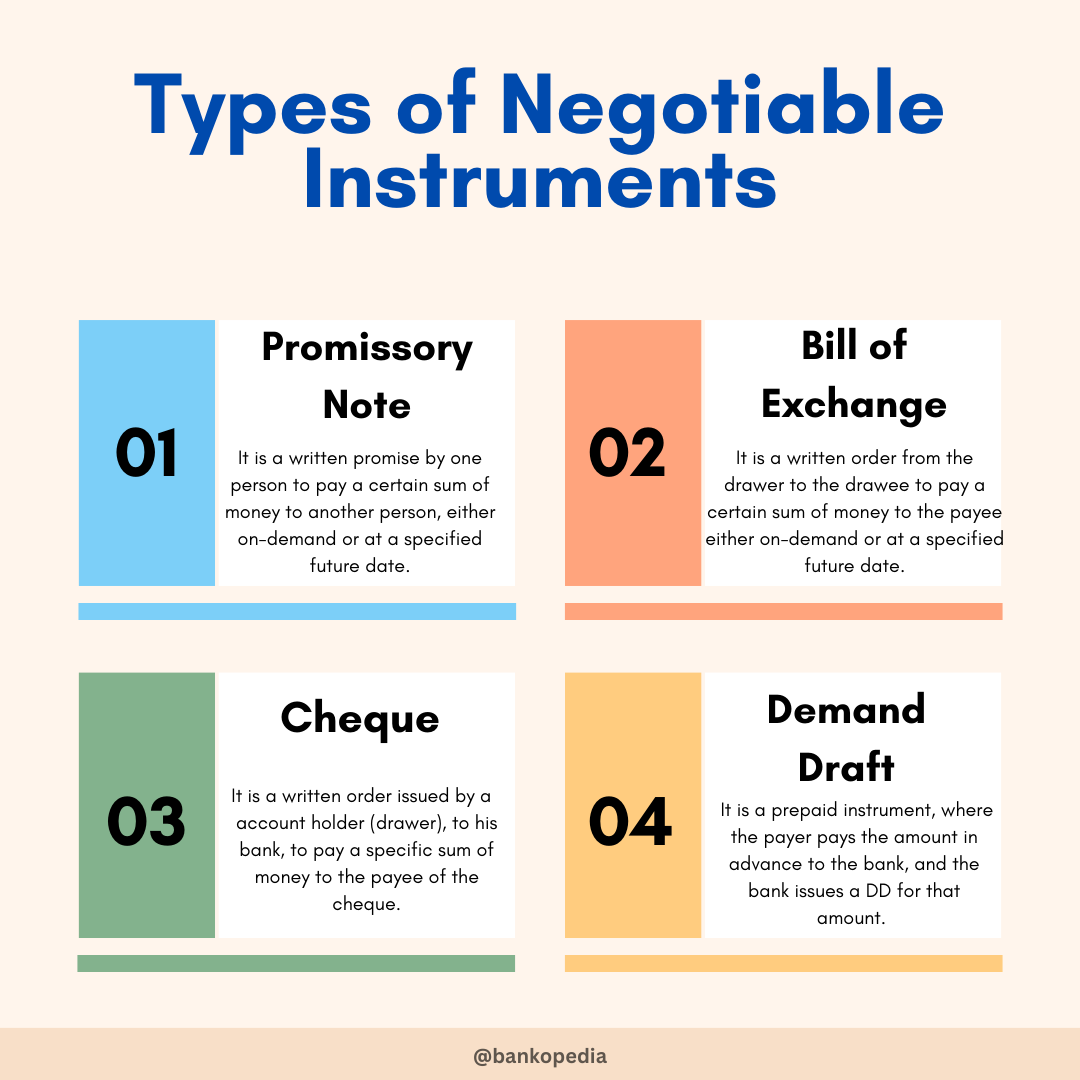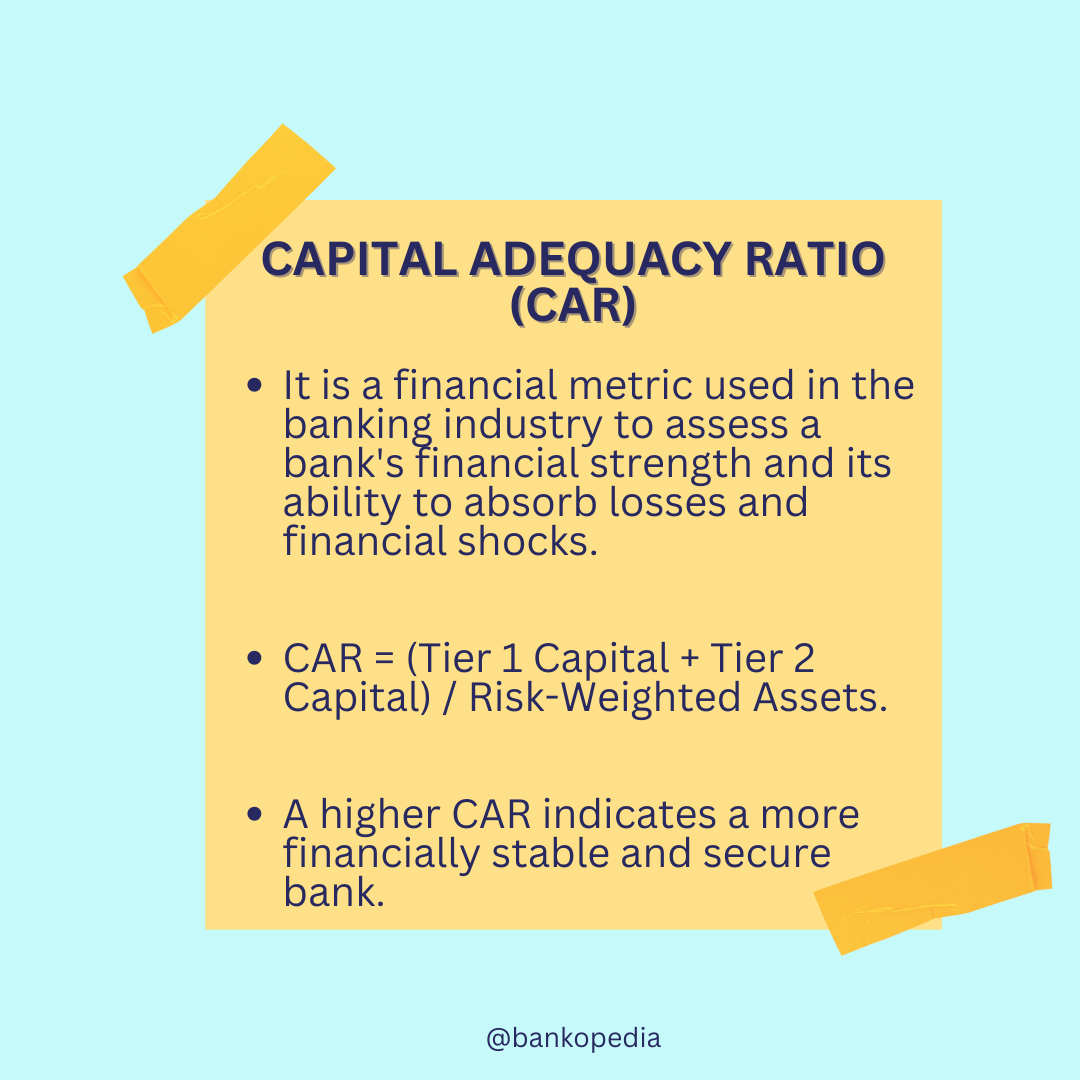Daily Banking Digest – 16 February 2024
Welcome to Daily Banking Digest, your premier source for the latest news and insights on February 16, 2024, focusing on banking, the economy, and finance. Our platform offers a comprehensive overview of the day’s most critical financial stories, market trends, and economic developments. Whether you’re a professional in the financial sector, an investor monitoring market movement, or someone interested in staying informed about the economic landscape, Daily Banking Digest provides reliable, up-to-date information.
Join our Telegram Channel for Daily PDF in your Inbox – Click Here
Table of Contents
NARCL, Omkara ARC in fray for Wind World debt
Two asset reconstruction companies, the state-owned National Asset Reconstruction Company (NARCL) and Manish Lalwani’s Omkara Assets Reconstruction Company (ARC), who are competing to acquire the debt of Wind World (India), a wind turbine manufacturer that has been undergoing a corporate insolvency process for over five years.
Key points:
- NARCL has proposed a bid of ₹670 crore to lenders, while Omkara ARC has offered ₹550 crore in upfront cash.
- NARCL’s offer includes 15% in cash and the remaining 85% in security receipts, redeemable upon loan recovery or at the end of five years.
- The lead bank, IDBI Bank, is considering a Swiss challenge auction using NARCL’s bid as the base offer.
- If a counteroffer is received, NARCL has the right to match it.
- Neither NARCL nor Omkara ARC responded to comments by the time of the press.
- Wind World (India) has a cash balance of ₹300 crore, is still operating, and its assets are seen as valuable due to the demand in the renewable energy sector.
- The company entered insolvency in 2018, but the resolution was delayed by litigation and the COVID-19 pandemic.
- A previous bid by a consortium led by Suraksha ARC was withdrawn, leading to disputes with lenders.
- Claims admitted by the resolution professional total ₹6,147 crore, with the majority from secured lenders.
- There has been a financial dispute between Wind World (India)’s joint venture partners, leading to allegations of financial misconduct.
CAIT members meet FM, demand deferment of I-T Act clause related to MSMEs.
The Confederation of All India Traders (CAIT) has met with India’s Finance Minister to request that a new income tax rule related to payments for MSMEs (Micro, Small, and Medium Enterprises) be postponed for one year. CAIT is concerned about the lack of clarity surrounding the rule’s implementation.
Key Points:
- CAIT Request: The trade body is asking for the implementation of the income tax clause to be deferred from April 1, 2024, to April 1, 2025.
- Reason for Request: CAIT cites confusion over the applicability of the law and how it should be implemented.
- MSME Support: CAIT supports the intent of the rule, which is to ensure timely payments to MSMEs and improve their cash flow.
- Clarity and Awareness: CAIT believes there is a need for government and trade organizations to work together to raise awareness and provide better explanations of the new rule for traders.
- The New Rule: This income tax clause was included in the Finance Act of 2023 to help address financial problems faced by the MSME sector.
RBI and Nepal Rastra Bank to integrate their respective fast payment systems.
The Reserve Bank of India (RBI) and Nepal Rastra Bank (NRB) are taking steps to integrate their respective fast payment systems – India’s Unified Payments Interface (UPI) and Nepal’s National Payments Interface (NPI). This integration aims to make cross-border remittances between India and Nepal faster, easier, and less expensive.
Key Points:
- Central Banks Collaborate: The RBI and NRB have established a framework (Terms of Reference) to initiate the integration process.
- Seamless Remittances: The integration will allow users of UPI and NPI to make instant, low-cost cross-border transfers between India and Nepal.
- Strengthening Ties: This initiative is expected to deepen financial connectivity between India and Nepal, further reinforcing their shared history, culture, and economic relationships.
- UPI as a Global Model: The RBI Governor sees UPI’s international expansion as a way to establish it as a leading model for cross-border payments globally.
- Existing Integrations: UPI already has a linkage with Singapore’s PayNow and an MOU is in place for integration with the UAE’s Instant Payment Platform (IPP).
Global equity allocation at two-year high: BofA Fund Manager Survey
Global asset managers have become more optimistic about the world economy, with many no longer expecting a recession. This improved outlook has led to a decrease in cash holdings and increased investment in global equities, reaching a two-year high.
Key Points:
- Optimism and Reduced Recession Fears: Investors are bullish on global growth and no longer predicting a recession for the first time since April 2022.
- Reduced Cash Holdings: Cash levels have dropped as investors are moving away from safer assets due to improved risk perception.
- Increased Equity Allocation: Global equity allocation is at its highest level in two years.
- Preference for India, Taiwan, Japan: Asian markets like India, Taiwan, and Japan are favored by investors, while China remains less attractive.
- Positive US Outlook: Allocation to US stocks is at its highest since late 2021, and tech stocks are especially popular.
- Shift towards Growth Stocks: A slight preference is emerging for growth stocks over value stocks.
RBI may relax evergreening rules for strategically important AIFs.
The Reserve Bank of India (RBI) might relax restrictions on “strategically important” funds that were imposed to discourage the practice of evergreening (lending more money to cover bad debts). This relaxation could benefit specific funds but may still put restrictions on debt funds to limit risk.
Key Points:
- Potential Carve-Out: The RBI is considering exempting funds like NIIF, SIDBI Fund of Funds, SBICap Venture’s SRI Fund, and SWAMIH Investment Fund from evergreening restrictions.
- Focus on Debt Funds: Equity funds may receive some flexibility, but debt funds are likely to remain under closer scrutiny as they are seen as higher risk for evergreening practices.
- Exposure Limits: The RBI may introduce caps on how much NBFCs can invest in Alternative Investment Funds (AIFs).
- Equity vs. Debt: Experts note that banks typically invest in equity funds rather than private credit funds, suggesting equity funds are less likely to be used for evergreening.
- Industry Pushback: Industry representatives advocate for more carve-outs for equity funds with safeguards in place.
- Bank Participation: Existing regulations limit bank investments in AIFs, reducing the scope for evergreening. Some argue banks should be exempt from restrictions.
- Impact on Credit Funds: Strict rules could harm credit funds, as they rely on bank investments. If rules aren’t relaxed, banks may avoid them.
HDFC Bank’s home loans growing faster post-merger, aiding CASA deposit growth.
HDFC Bank has seen accelerated growth in its home loan portfolio since its merger with HDFC. This expansion is fueled by leveraging HDFC’s strengths, streamlining processes, and increasing cross-selling to existing customers. The bank is focused on expanding its customer base and product offerings to continue this growth trajectory.
Key Points:
- Rapid Growth: HDFC Bank’s home loan book has experienced strong sequential growth in recent quarters, surpassing its peers.
- Merger Benefits: The bank attributes the growth to the wider distribution network and faster processing times inherited from the HDFC merger.
- Customer Focus: Increased focus on HDFC Bank’s existing customer base for home loans has increased customer stickiness.
- Self-Employed Segment: The bank is specifically targeting self-employed individuals with improved assessment methods and customized product offerings.
- Expansion Plans: HDFC service centers are being converted into branches, offering opportunities for cross-selling additional products.
- New Products: HDFC Bank is launching “straight through journey” for refurbishment loans and a “Home Saver” product to further attract customers.
Only one card network has unauthorised BPSP operations: RBI
The Reserve Bank of India (RBI) has banned unauthorized payments made through business credit cards via intermediaries. The RBI discovered that one unnamed card network allowed businesses to make payments to entities that don’t accept cards through certain intermediary service providers. This practice, known as Business Payment Solution Providers (BPSP), raised concerns as it bypassed regulations and lacked proper Know Your Customer (KYC) procedures. While the RBI didn’t name names, Visa publicly acknowledged receiving communication from the central bank regarding BPSPs. The RBI assures this action only targets unauthorized practices and doesn’t affect regular business credit card usage.
Key Points:
- RBI cracks down on unauthorized business card payments: The RBI identified and prohibited a practice where businesses could make card payments to non-card-accepting entities through intermediaries, raising regulatory and KYC concerns.
- One card network involved: The RBI didn’t name the network, but Visa confirmed receiving inquiries from the central bank about BPSPs.
- Concerns about BPSPs: The RBI found BPSPs concerning because intermediaries pooled funds in unauthorized accounts and transactions lacked proper KYC information.
- Action targets specific practice: The RBI clarifies this action doesn’t restrict regular business credit card usage.
Electoral Bonds Case Verdict: SC unanimously strikes down poll bonds scheme, terms it ‘unconstitutional’
The Supreme Court of India has declared the electoral bonds scheme unconstitutional. Electoral bonds, introduced in 2018 as a way to facilitate anonymous political donations, undermine the Right to Information and allow for potential corporate influence in elections. The court directed the State Bank of India (SBI) to cease selling electoral bonds and provide details of past donations to the Election Commission for publication.
Key Points:
- Electoral Bonds Struck Down: The Supreme Court unanimously ruled electoral bonds unconstitutional, citing a violation of the Right to Information.
- Anonymity Concerns: The lack of transparency surrounding donor identities raises concerns about the potential for corporate influence and a “quid pro quo” arrangement with political parties.
- SBI Must Halt Sales: The State Bank of India has been ordered to stop selling electoral bonds.
- Disclosure Required: The SBI must provide the Election Commission with details about past donations, including donors and recipient political parties. This information will be made public.
- Government’s Rationale: The electoral bonds scheme, introduced by the BJP government in 2018, aimed to improve transparency in political funding.
Exports rise 3.12 pc in January despite Red Sea crisis; trade gap shrinks to 9-month low
India’s merchandise exports increased 3.12% to $36.92 billion in January 2024, despite global challenges like the Red Sea crisis. This is the highest export growth in three months. The trade deficit narrowed to $17.49 billion, the lowest in nine months.
Key points:
- Exports up: Merchandise exports grew 3.12% to $36.92 billion in January 2024 compared to January 2023. This is the highest growth in three months.
- Imports up: Imports grew 3% to $54.41 billion in January 2024 compared to January 2023.
- Trade deficit narrows: The trade deficit narrowed to $17.49 billion in January 2024, the lowest in nine months.
- Challenges remain: The export growth comes despite global challenges like the Red Sea crisis, which is increasing shipping costs.
- Government efforts: The government is taking steps to support exporters, such as working with banks to provide credit and with shipping companies to find alternative routes.
- Services exports up: Services exports also grew, reaching $32.8 billion in January 2024, compared to $28 billion in January 2023.
- India’s global export share: India’s share in global exports has increased from 8% in 2014 to 10.35% in 2022.
India rejects European FTA bloc’s ‘data exclusivity’ demand to protect generic drug firms’ interest
India has firmly rejected demands from the European Free Trade Association (EFTA) bloc to include a “data exclusivity” provision in their proposed free trade agreement. India prioritizes protecting the interests of its generic drug industry and will not make agreements that harm it.
Key Points:
- No Data Exclusivity: India has explicitly rejected the EFTA demand for data exclusivity, which would protect technical data generated by pharmaceutical innovators.
- Protecting Generic Drugs: India’s Commerce Secretary emphasizes the importance of protecting India’s generic drug industry, which is a significant contributor to both domestic healthcare and exports.
- Beyond WTO Requirements: Data exclusivity goes beyond the provisions of the WTO’s TRIPS Agreement.
- EFTA Negotiations: India and EFTA (Iceland, Liechtenstein, Norway, Switzerland) are negotiating a free trade agreement aimed at boosting economic ties.
- Swiss Pharmaceuticals: EFTA member Switzerland is home to major pharmaceutical firms like Novartis and Roche, who have interests in India.
- Trade Importance: India’s generic drug industry is valued at approximately $25 billion and plays a crucial role in global healthcare access.
India’s trade deficit widens annually to $17.49 bn in January.
India’s trade deficit widened to $17.49 billion in January 2024 compared to the same month last year. Although larger year-on-year, the deficit represents a nine-month low on a sequential basis, indicating a narrowing trend. This comes despite global economic uncertainties.
Key Points:
- Widening Trade Deficit: The figure stands at $17.49 billion in January 2024, up from $17.03 billion in January 2023.
- Sequential Narrowing: Compared to December 2023’s $19.8 billion, the trade deficit has decreased, exhibiting a narrowing trend.
- Exports Up, Imports Up: Merchandise exports increased by 3.12% year-over-year, while imports grew by 3%.
- Services Sector: Growth was also seen in both services exports and imports.
- Fiscal Year: For the April-January period, overall exports declined by 4.89%, and imports decreased by 6.71%
- Trade Deficit Improves: Overall, the trade deficit has improved during the fiscal year by 37.11%.
- Positive Growth Despite Challenges: The Commerce Secretary emphasized positive export growth amidst global economic headwinds.
RBI Governor Shaktikanta Das highlights main challenges in inflation fight
RBI Governor Shaktikanta Das highlights the challenges policymakers face in fighting inflation, including persistent food price shocks and geopolitical tensions. He emphasizes that stable, low inflation is essential for sustainable economic growth, and India aims to grow at 7% in the upcoming fiscal year.
Key Points:
- Inflationary Challenges: Food price shocks and geopolitical conflicts hinder efforts to reduce inflation.
- Importance of Low Inflation: Das stresses that stable, low inflation is crucial for sustainable economic growth.
- India’s Growth Outlook: India is projected to grow at 7% in the next fiscal year, fueled by prudent fiscal and monetary policies.
- India’s Success Story: India has weathered economic challenges effectively, demonstrating the value of coordinated policy responses.
- Global Economic Crossroads: The world economy faces a mix of challenges and opportunities, requiring policymakers to adapt and find solutions.
- Need for Proactive Central Banks: Das calls for central banks to be proactive in addressing price stability and broader financial stability in an uncertain global environment.
PayU, NPCI join hands to roll out Credit Lines on UPI
Payments provider PayU teams up with the National Payments Corporation of India (NPCI) to introduce “Credit Lines on UPI.” This feature will grant users convenient access to pre-approved credit through their UPI accounts, enhancing financial inclusion and offering growth opportunities for merchants.
Key Points:
- Credit Lines via UPI: The collaboration makes it possible for banks to offer pre-approved credit lines directly through the UPI platform.
- Boosting Financial Inclusion: This move expands access to credit for millions of UPI users, contributing to India’s efforts to broaden financial inclusion.
- Merchant Benefits: PayU will gather data on relevant credit identifiers for merchants, allowing them to create targeted offers and improve customer experiences.
- Credit-Driven Growth: PayU sees credit as the next stage in the evolution of digital payments.
- Large User Base: The potential impact is significant, given the estimated 380 million UPI users.
Indian banks’ margins set to fall, credit growth to moderate in FY25: S&P
S&P Global Ratings warns that tighter funding conditions in India could slow loan growth and squeeze bank margins in the next fiscal year (FY25). While credit demand remains strong, banks might struggle to attract sufficient deposits to sustain current growth rates.
Key Points:
- Slower Loan Growth Expected: Credit expansion is projected to ease by 200 basis points to 14% in FY25, primarily due to funding constraints.
- Margin Pressure: Banks’ net interest margins could decline as competition for deposits intensifies.
- Private Banks Face More Pressure: Private-sector banks, with higher loan-to-deposit ratios and faster growth than public-sector banks, are likely to feel the impact more acutely.
- HDFC Bank’s Challenge: The HDFC-HDFC Bank merger has temporarily weakened HDFC Bank’s funding profile, and restoring it may take several years.
- Balancing Act: Indian banks face a delicate balance between maintaining strong loan growth and paying higher deposit rates. Too much competition for deposits could hurt margins or slow growth.
Expert panel suggests adoption of voluntary mediation in insolvency cases.
An expert committee recommends introducing voluntary mediation into India’s Insolvency and Bankruptcy Code (IBC) to facilitate dispute resolution. The goal is to offer a more flexible alternative to the existing IBC process while maintaining strict timelines.
Key Points:
- Phased Introduction: Mediation will initially be voluntary, with a potential second phase exploring mandatory mediation involving financial creditors.
- Independence and Flexibility: The framework emphasizes mediator independence and the ability to adapt quickly based on implementation learnings.
- Preserving IBC Principles: Mediation settlements must adhere to the IBC’s established waterfall payment mechanism.
- Specialized Mediation Cell: The committee proposes a dedicated NCLT-annexed mediation cell with a separate secretariat to manage insolvency mediations.
- Qualified Mediators: Mediators could include retired NCLT/NCLAT members, senior lawyers, experienced insolvency professionals, and former financial regulators.
- Benefits of Mediation: Mediation can help resolve disputes at the pre-default stage, aiding recovery and resolution efforts without needing formal insolvency proceedings.
Coaching centres with over 20 students to leave residential areas: Delhi HC
The Delhi High Court has directed coaching centers with over 20 students to relocate from residential areas to commercial spaces. The court cites safety concerns for students in residential buildings that often lack necessary fire safety infrastructure.
Key Points:
- Safety Mandate: Coaching centers with more than 20 students must move to commercial buildings for safety reasons.
- Safety Concerns: Residential buildings frequently lack adequate fire safety features like two staircases, posing risks to students.
- Petition Challenge: The Coaching Federation of India is challenging the inclusion of coaching centers in the “Educational Buildings” definition, which imposes fire safety requirements.
- Clarification Sought: The petitioner argues for a distinction between coaching centers and degree/diploma-granting educational institutions, as the latter may have different infrastructural requirements.
- UBBL 2020 Notification: The petition challenges the 2020 Delhi Development Authority (DDA) notification that included coaching centers within the “Educational Buildings” definition.
- Compliance Commitment: Coaching centers express willingness to comply with fire safety standards.
New US sanctions target India’s biggest crude grades from Russia
The US continues to tighten sanctions on Russian oil exports, targeting tankers transporting both cheaper Urals crude and premium Sokol crude. These sanctions disrupt India’s reliance on Russian oil, particularly Sokol shipments, and expose Indian buyers to complications of sanctioned vessels.
Key Points:
- Sanctions Expand: After December sanctions on Sokol shipments, the US further targets Urals exports by sanctioning UAE-based shipping firms and Liberia-based vessel owners.
- Disrupted Shipments: Many previously used tankers are either idling or diverted. A tanker carrying Urals for India had to turn back after its owner was sanctioned.
- India’s Reliance on Russian Oil: Urals and Sokol crude collectively represented approximately 80% of India’s Russian oil imports last year.
- Sokol Shipments Hit: India hasn’t received Sokol cargoes since December due to sanctions on Dubai-based Sun Ship Management, a major Sokol supplier.
- Cargo Restrictions: India cannot receive Russian cargoes shipped on sanctioned vessels, regardless of whether the oil price is below the cap or not.
- Global vs. India-Specific Impact: US sanctions on Russian shipping impact global markets, but India, as a major buyer dependent on hard currency transactions, is particularly affected.
Overnight money market rates near MSF despite slew of VRR auctions.
Overnight money market rates in India have risen close to the Marginal Standing Facility (MSF) rate, driven by a persistent liquidity deficit in the banking system. This trend occurs despite the RBI’s attempts to manage liquidity through variable rate repo auctions.
Key Points:
- Liquidity Deficit: The banking system continues to face a liquidity deficit of around Rs 2 trillion.
- Rising Overnight Rates: Consequently, the weighted average call rate (overnight lending rate) has escalated by 22 basis points within a short period.
- RBI’s Efforts: The RBI aimed to maintain overnight rates around the repo rate but has met limited success.
- Market Impact: Yields on commercial papers and certificates of deposit are also increasing across tenures.
- Factors Contributing to Tight Liquidity: Factors like GST payments and reduced government spending may have contributed to the tight liquidity situation.
- Outlook: Market experts anticipate sustained upward pressure on rates in the near term.
Japan slips to world’s 4th-largest economy, behind US, China, and Germany
Japan’s economy has slipped to fourth place globally, overtaken by Germany. This decline is attributed to factors including a weaker yen, declining population, and lagging productivity.
Key Points:
- Economic Downturn: Japan experienced two consecutive quarters of economic contraction, signaling a technical recession.
- Falling Behind: Japan’s nominal GDP fell behind Germany’s in 2023, in part due to a weaker yen.
- Historical Context: Once a post-WWII economic powerhouse, Japan has struggled with moderate or weak growth for decades since the 1990s financial bubble burst.
- Demographic Challenges: Japan’s shrinking and aging population poses a significant economic challenge.
- Global Shifts: Emerging economies like India are poised to overtake Japan in nominal GDP in the coming years.
- Roots of Decline: Factors contributing to Japan’s economic slump include stagnant wages, lack of immigration to address labor shortages, and businesses investing more in overseas markets.
EU emissions tariff system must be fair to developing world: CEA
Chief Economic Advisor V Anantha Nageswaran criticizes the EU’s Carbon Border Adjustment Mechanism (CBAM) as potentially unfair to developing countries. He emphasizes the need for developed nations to compensate developing countries that bear the costs of mitigating climate change and insuring against economic risks.
Key Points:
- CBAM Concerns: The CBAM, set to impose tariffs on imported goods based on carbon emissions, could disadvantage developing economies while protecting industries in developed countries.
- Equity and Compensation: Nageswaran calls for developed nations to compensate developing countries that provide “insurance” by absorbing climate change risks, mitigating emissions, and adapting their economies.
- Geopolitical Risks of Energy Transition: Transitioning to renewable energy can make countries reliant on limited sources of rare earth minerals, creating supply chain risks that need insurance mechanisms.
- Stranded Assets: Financial institutions face risks from assets potentially devalued during the energy transition and require mechanisms like contingency capital to hedge against losses.
- Insurance Beyond Emissions: Nageswaran highlights the need to insure against risks of overly restrictive emissions policies in developed countries that could harm output and employment in developing nations.
- Focus on Adaptation: Adaptation and resilience should receive as much attention as reducing emissions, with developed nations helping fund such efforts in developing countries.
UK economy entered recession in second half of 2023.
The UK economy has officially entered a recession after contracting for two consecutive quarters. This news presents a challenge for Prime Minister Rishi Sunak and his Conservative Party, who face an expected election this year amidst declining economic confidence.
Key Points:
- Recession Confirmed: GDP contracted by 0.3% in the fourth quarter of 2023, following a 0.1% decline in the third quarter, signaling a technical recession.
- Economic Stagnation: The UK economy now stands only 1% higher than pre-pandemic levels, lagging behind most other G7 nations.
- Political Implications: The recession undermines the Conservatives’ reputation for economic management and boosts the opposition Labour Party. Voters are also facing a decline in living standards.
- Finance Minister’s Response: Jeremy Hunt claims the economy is “turning a corner” but faces pressure to offer tax cuts and support in the upcoming budget.
- Central Bank Outlook: The Bank of England may consider cutting interest rates as early as June to stimulate the economy, though wage growth and lingering inflation present risks.
- Historical Context: The UK’s current economic stagnation and per capita GDP decline represent the most prolonged challenges since records began in 1955.
Tax free premature redemption of Sovereign Gold Bond (SGB) is allowed only within this 21-day annual window
Retail investors holding Sovereign Gold Bonds (SGBs) can avoid paying capital gains tax by taking advantage of the RBI’s premature redemption program. However, this option has specific deadlines and procedures that must be followed.
Key Points:
- Eligibility: Premature redemption is available starting from the fifth year of an SGB’s issuance, on coupon payment dates.
- Annual Deadline: Investors must submit their request for premature redemption within a designated time frame each year, typically 30 days before the coupon payment date.
- Missed Deadlines: If an investor misses the annual deadline, they cannot redeem that SGB prematurely until the next designated window opens.
- Interest Payments: SGBs provide semi-annual interest payments, and premature redemption windows open twice a year for each specific SGB tranche.
- 10-Day Gap: The 10-day gap between the interest payment date and the redemption deadline allows for processing and potential requests for additional information from the investor.
- Operational Guidelines: The process for premature redemption, including deadlines and documentation requirements, is detailed in the RBI’s operational guidelines for SGBs.
Govt hikes windfall tax on petroleum crude to Rs 3,300 a tonne from Feb 16
The Indian government has once again increased the windfall tax on crude oil and has reintroduced a windfall tax on diesel exports. These revisions aim to address the profits energy companies make when global oil prices surge.
Key Points:
- Crude Oil Tax Hike: The windfall tax on petroleum crude has increased to ₹3,300 ($39.76) per metric ton from ₹3,200, effective February 16.
- Diesel Export Tax: A windfall tax of ₹1.50 per litre has been reintroduced on diesel exports, which had previously been reduced to zero.
- ATF and Petrol: Windfall taxes on aviation turbine fuel (ATF) and petrol remain at zero.
- Windfall Tax Background: India initially imposed windfall taxes in July 2022 on crude oil producers and later extended them to fuel exports to deter private refiners from prioritizing overseas sales over domestic needs.
- Fortnightly Revisions: The government adjusts windfall taxes every two weeks to align with changes in global oil prices.
No TDS on minimum guarantee paid by OYO Rooms to hotels: ITAT
The Income Tax Appellate Tribunal (ITAT) has ruled in favor of OYO Rooms, stating that the company is not liable to pay Tax Deducted at Source (TDS) on minimum guarantee payments it makes to hotels.
Key Points:
- Nature of Payments: The ITAT determined that OYO’s minimum guarantee payments to hotels are compensatory for shortfall in room occupancy, not payment for services rendered.
- No TDS Requirement: Since the payments are not considered for services, TDS provisions under the Income Tax Act do not apply.
- ITAT’s Reasoning: The ITAT agreed with OYO’s argument that it provides technology and marketing services, while hotels operate independently in terms of lodging and accommodation.
- Tax Expert’s View: Sandeep Sehgal, a tax partner at AKM Global, supports the ITAT ruling, emphasizing the compensatory nature of the minimum guarantee payments.
Financial Concept of the Day – Zero-Coupon Bonds?
- Zero-coupon bonds are debt securities that don’t pay regular interest payments (coupons) like traditional bonds.
- Instead, they are issued at a deep discount to their face value (the amount you receive at maturity).
- The difference between the purchase price and the face value represents the investor’s return on investment.
Example in Indian Rupees:
Let’s assume a zero-coupon bond with the following characteristics:
- Face Value: ₹10,000
- Purchase Price: ₹7,000
- Maturity: 10 years
In this example, you purchase the bond for ₹7,000 today. At the end of the 10-year maturity period, you receive the face value of ₹10,000. Your profit is the ₹3,000 difference between the purchase price and face value.
Key Features of Zero-Coupon Bonds:
- Sensitivity to Interest Rates: Due to their structure, zero-coupon bonds are more volatile and sensitive to changes in interest rates compared to traditional bonds.
- Taxation: Although you don’t receive interest payments, the implied interest is often considered taxable income in India, according to the Income Tax Act.
- Long-Term Investment: Well-suited for investors with long-term saving goals, like retirement, since you won’t immediately receive your returns.
Where to Find Zero-Coupon Bonds in India:
- Government: The government sometimes issues zero-coupon bonds (example: Treasury Bills)
- Corporations: Certain companies might issue zero-coupon bonds.
- Mutual Funds: Some mutual funds invest in zero-coupon bonds, providing convenient access for retail investors.
Important Considerations:
Before investing in zero-coupon bonds, carefully research the following:
- Issuer: The credibility and financial stability of the issuer (government or corporation) is crucial.
- Maturity Period: Ensure it aligns with your investment goals.
- Tax Implications: Understand the tax implications on the implied interest.











